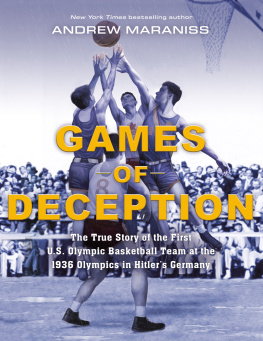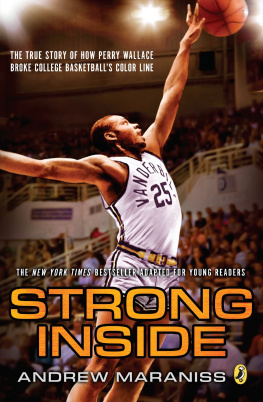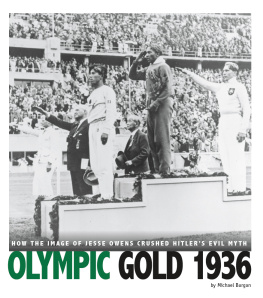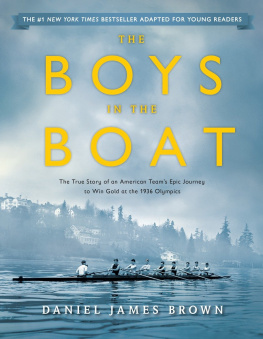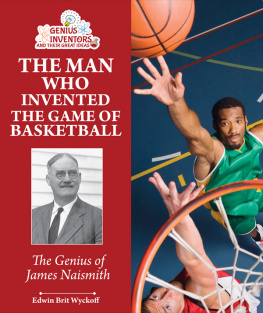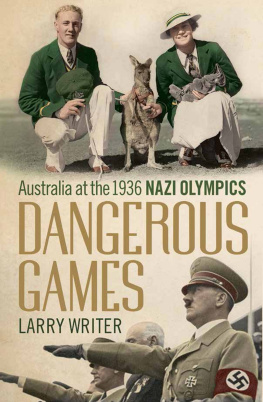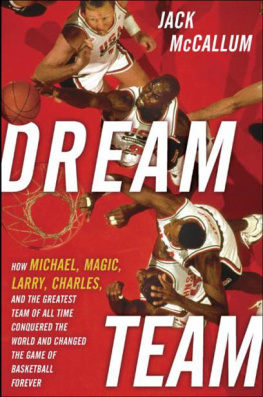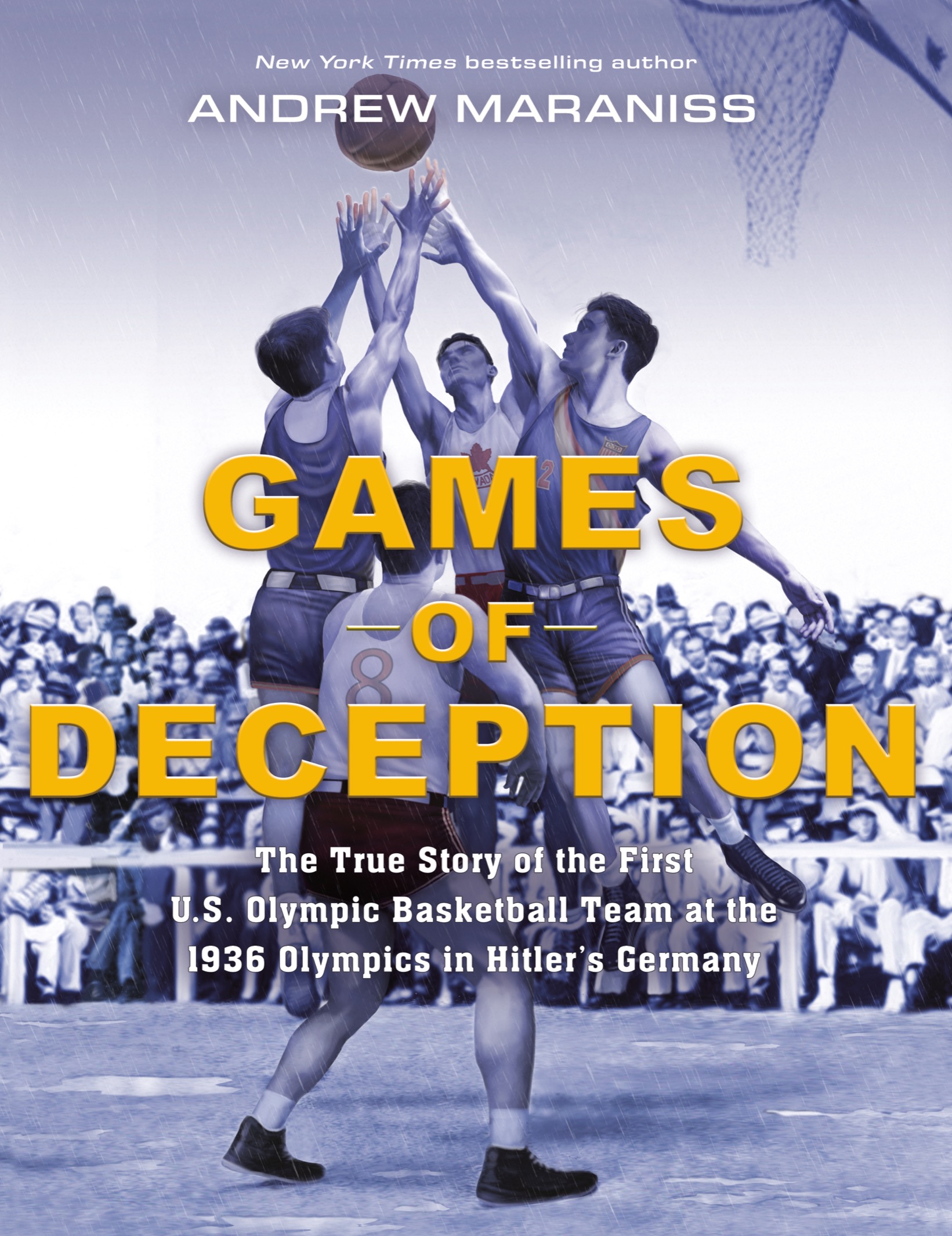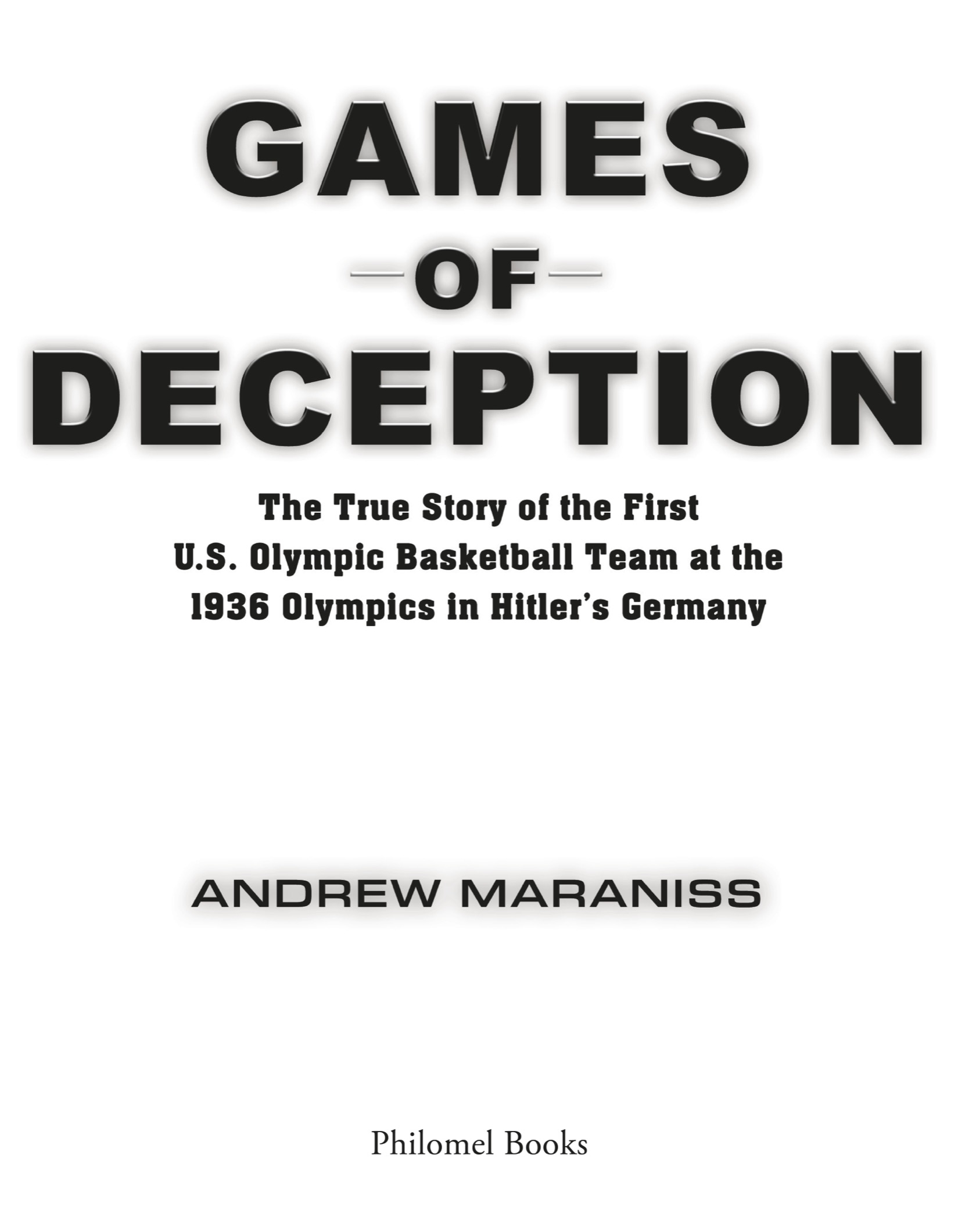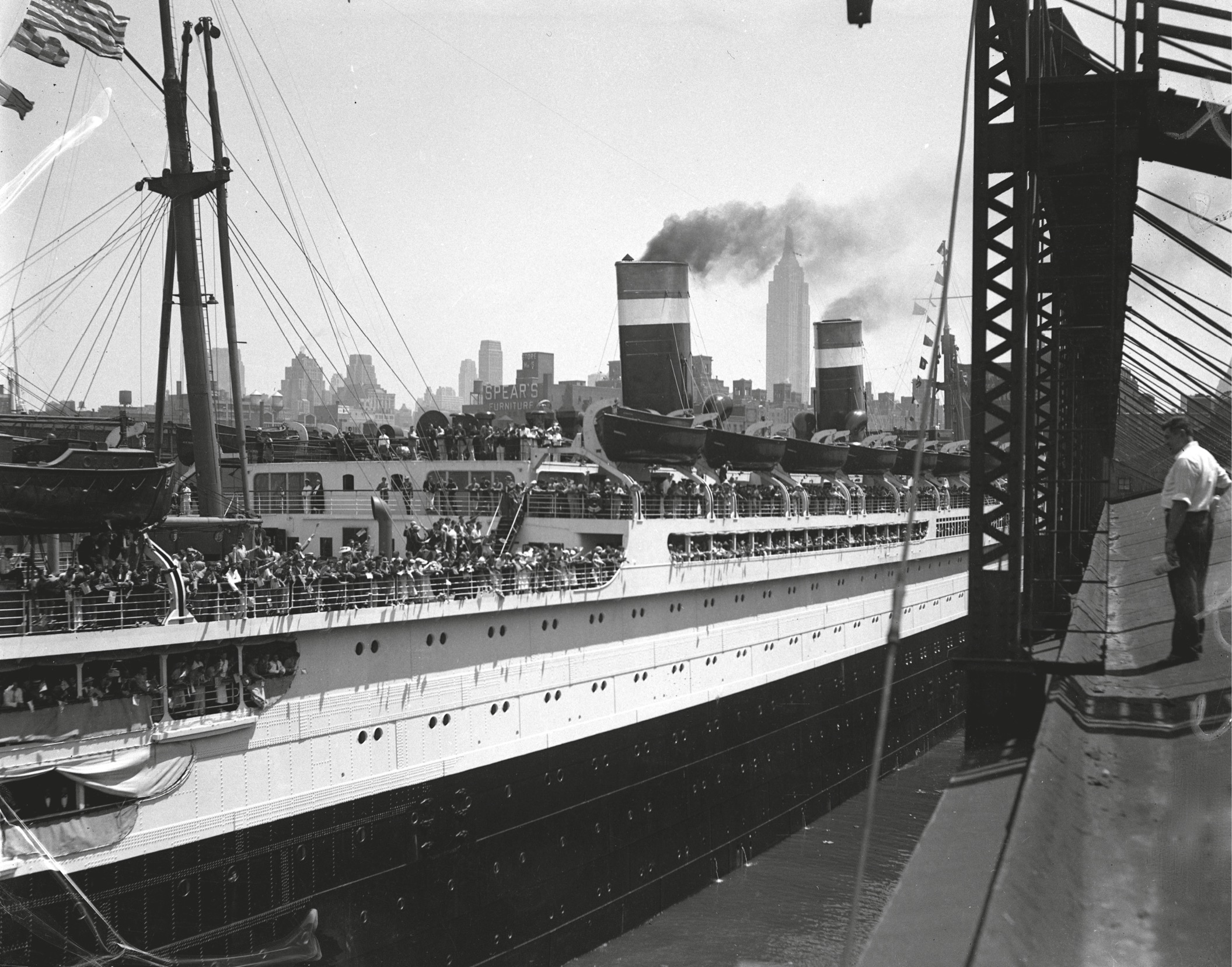an imprint of Penguin Random House LLC, 2019.
Copyright 2019 by Andrew Maraniss.
Penguin supports copyright. Copyright fuels creativity, encourages diverse voices, promotes free speech, and creates a vibrant culture. Thank you for buying an authorized edition of this book and for complying with copyright laws by not reproducing, scanning, or distributing any part of it in any form without permission. You are supporting writers and allowing Penguin to continue to publish books for every reader.
Philomel Books is a registered trademark of Penguin Random House LLC.
LIBRARY OF CONGRESS CATALO GING - IN - PUBLICATION DATA IS AVAILABLE .
Edited by Jill Santopolo.
CHAPTER ONE
One Man Stood Alone
July 15, 1936
New York City
It was another scorching-hot day in New York, but that didnt stop thousands of people from crowding the docks along the Hudson River.
The scene looked and sounded like the Fourth of July. Bands played patriotic tunes as men, women, and children on both sides of the Hudson cheered and waved small American flags. Even the SS Manhattan was dressed for the occasion, with its red hull, white superstructure, and red, white, and blue funnels. Planes circled overhead, and, out on the water, boats sounded their horns and shot streams of water high into the air in celebration.
As far away as Kansas and California, families gathered around their radios, listening to announcers describe the festivities. At twelve noon, more than four hundred American athletes, coaches, officials, family members, and journalists would set sail on a nine-day journey to Germany for the greatest spectacle in the world, the eleventh Olympic Games.
With members of the U.S. Olympic team aboard, the New York City skyline in the distance and thousands of fans cheering from the shore, the SS Manhattan sets off for Germany on July 15, 1936. (New York Daily News)
But first, there was much to behold at Pier 60.
An African American man gave out homemade good-luck charms to the athletes as they boarded the ship, but he didnt even bother to hand one to the great black track star from Ohio State, Jesse Owens, telling onlookers that Owens wouldnt need any luck in Berlin.
Up on deck, a group of female athletesthere were a record number of them on this U.S. Olympic teamgathered in two rows for a photo. One woman called out, Were going to bring home the bacon, arent we, girls?! and her teammates let out a big cheer.
And who was that sprinting up the gangplank onto the boat? It was Willard Schmidt, all six foot nine of him, a skinny Nebraska farm boy who was the last man added to the U.S. Olympic basketball team. He hurried on board so nobody could stop him. Just being on this ship and on this team felt like such an improbable dream he was afraid somebody would pinch him and it would all be over.
Next came Schmidts USA Basketball teammates, including five more players from the Globe Refiners, his amateur team in McPherson, Kansas; seven from the Universals of Los Angeles; and one college player from the University of Washington. The Olympic team had been assembled by merging the two best amateur teams in the country (along with the one college player) after a qualifying tournament in New York where the Universals came in first and the Refiners second. The men who followed Schmidt onto the ship included Frank Frankenstein Lubin, a hulking six-foot-seven center; assistant coach Gene Johnson, stylishly dressed and talkative as usual; and his soft-spoken brother, Francis, a star of the team. Along, too, came Sam Balter from LA, and his buddies, Art Mollner, Carl Shy, and Carl Knowles. Lumbering aboard came big College Joe Fortenberry, the gentle giant from Happy, Texas. Tex Gibbons boarded the ship with one arm in a sling, while center Ralph Bishop from Washington, the only college player on the team, chatted with nine fellow UW Huskies, young men who would compete in a highly anticipated rowing event in Berlin. Rounding out the group were head coach Jimmy Needles, in desperate need of coffee (he drank twenty-five cups a day), along with Jack Ragland, Duane Swanson, Donald Piper, and Bill Wheatley.
The names of these men have been forgotten, but they were an important and historic group: 1936 marked basketballs debut as an official Olympic sport, and this was the first-ever United States Olympic basketball team. Decades later, the U.S. Olympic basketball team would be dubbed the Dream Team, and a new collection of superstars would command the worlds attention at the Summer Olympics every four years. But for Oscar Robertson and Jerry West to win Olympic gold in 1960, for Michael Jordan, Magic Johnson, and Larry Bird to win in 1992, or for Kobe Bryant, LeBron James, and Kevin Durant to taste gold more recently, there had to be this bunch of no-names walking up the plank at Pier 60 in 1936.
As the SS Manhattan pushed back just past noon, fans tossed their caps into the air; some even threw them in the river. Bill Wheatley looked out at thousands of cheering New Yorkers and considered how far hed come as a basketball player. Hed been cut from his college team. The coach told him he was no good. Now he was sailing to Europe to play the game he loved on the worlds largest stage.
The ship pushed farther away, and the scene at the pier began to thin out, people clutching their flags and heading back home and to work.
But pacing along the shore was a man who seemed out of place, different from the thousands who surrounded him. He walked silently, carrying a sign. It was an odd sign; the letters werent all that neatly written. And its message was startling. BOYCOTT NAZI GERMANY, LAND OF DARKNESS. BOYCOTT HITLER. KEEP AMERICA FREE. FIGHT FOR RACE TOLERANCE, DEMOCRACY AND PEACE. I SPENT 10 MONTHS IN A NAZI JAIL FOR DEFENDING THESE PRINCIPLES.
Boycott? It was too late now. The SS Manhattan had left Pier 60 and was on its way toward the Statue of Liberty and the Atlantic Ocean.
The people listening at home had turned off their radios. In seventeen days, the Olympics would begin with elaborate opening ceremonies broadcast from Berlin. The solitary protest of the courageous man with the sign, Richard Roiderer, would be long forgotten by then.
But maybe people should have paid closer attention. The man who stood alone understood there was more to this Olympics than met the eye. In Adolf Hitlers Berlin, all was not as it seemed.
CHAPTER TWO
A Sinister Faade
As the Americans on board the SS Manhattan watched the New York City skyline fade into the distance, four thousand miles ahead of them the finishing touches were applied to a city receiving an extreme makeover.
Berlin had never looked better than it did in July 1936. It was as if the seven-hundred-year-old German capital had transformed into the worlds largest movie set, a bright and shiny, picture-perfect fantasyland where every blade of grass was manicured, every smile permanently affixed and gleaming. A

